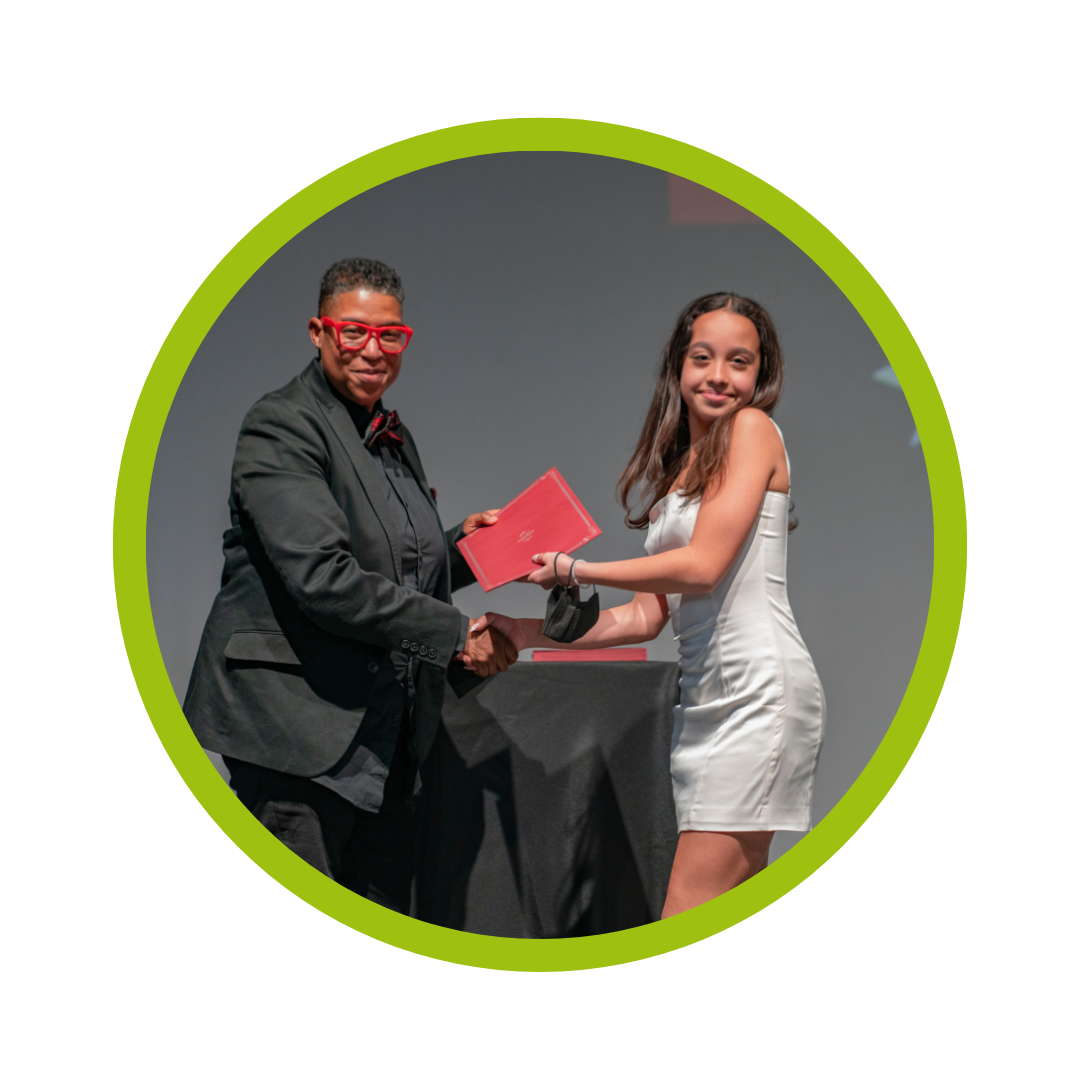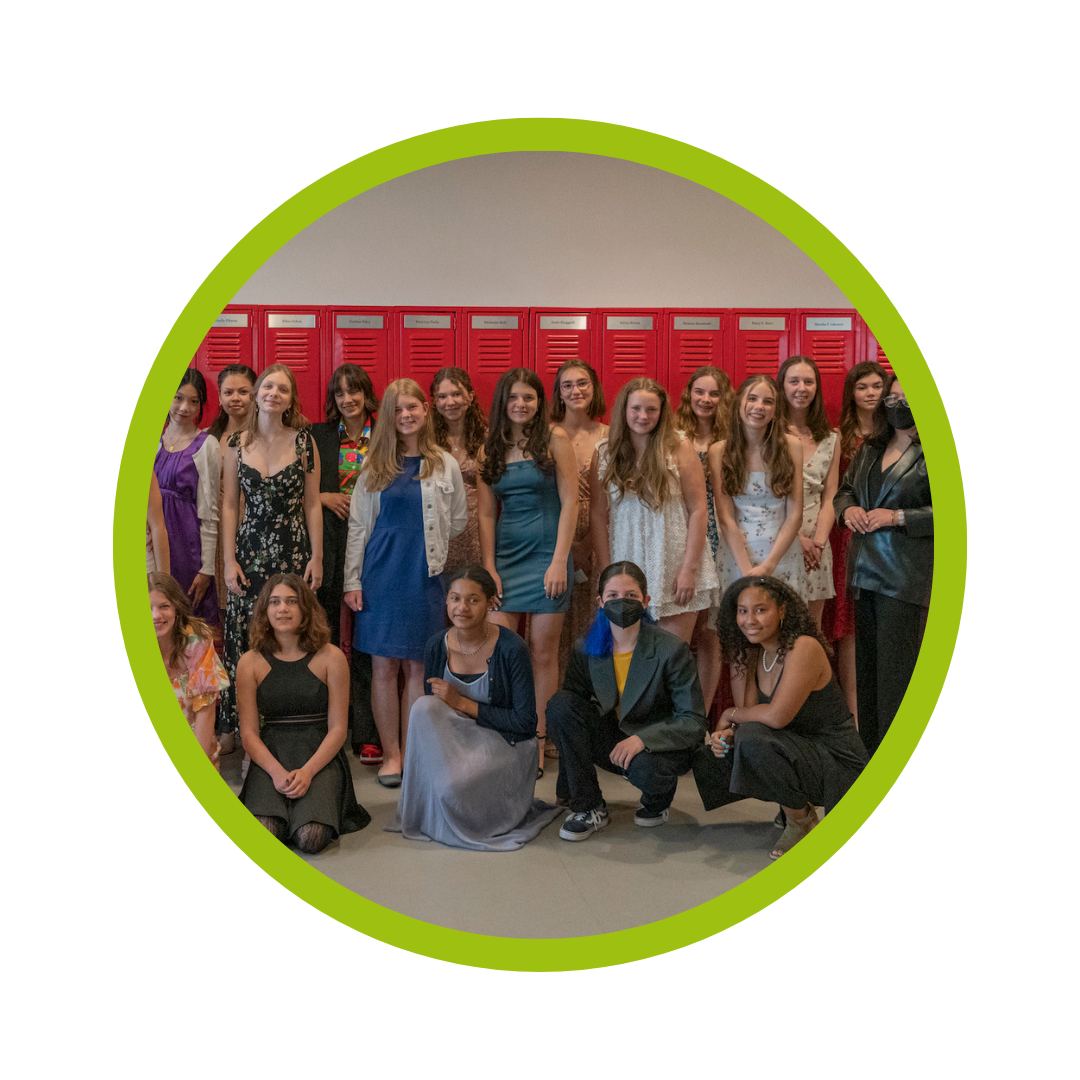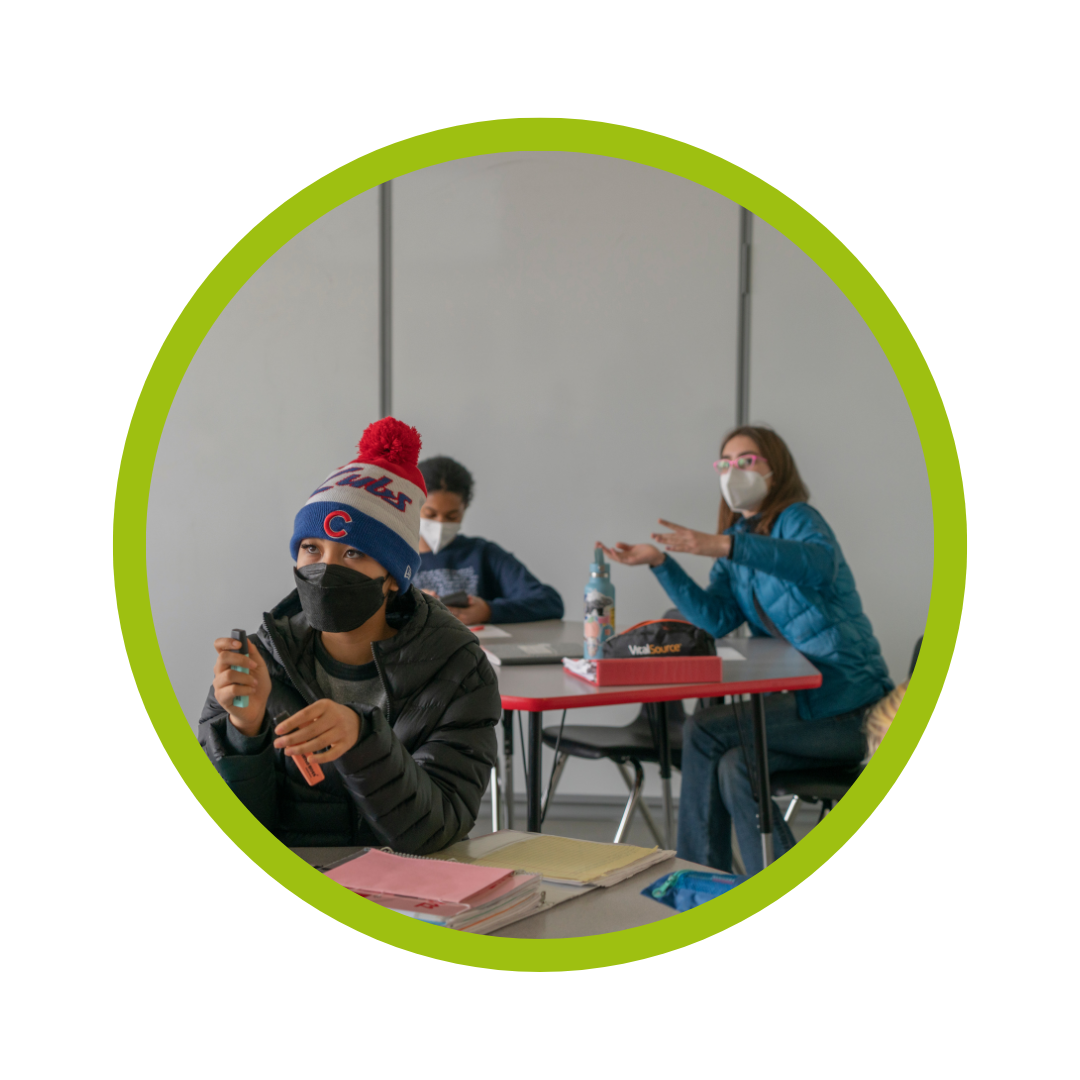8th Grade at L-Dub
The eighth grade Language Arts class is centered on the theme of voice, both in the literature students read and the writing students produce. With an emphasis on the voices from those in marginalized groups, students engage in regular discussions, writing, presentations, and other activities that reflect on the importance of having a voice through the powerful act of writing. In their own writing, students work on expository and creative pursuits to develop their own voices. They apply their critical thinking and reading skills to class texts and practice literary analysis through class discussions and writing assignments that explore the themes and issues raised in those texts. Additionally, they practice using rules of grammar and mechanics to generate clarity and precision. By the end of the course, students begin to ponder the role of writing as a tool for revolution.
ESSENTIAL QUESTIONS
- How does voice matter?
- What does literature contribute to understanding and changing society?
- How does identity shape individual and group status and experiences in society?
- How can literature serve as a vehicle for social change?
- How does power or lack of power affect individuals and communities?
In civics, students focus on civics and civil rights. We study the foundations of our democratic republic, examining, for example, the US and Washington State constitutions through the filter of social justice. In addition, we look at moments of major social and political change, using multiple case studies drawn from the history of the Pacific Northwest region - from the earliest treaties with native nations to racially restrictive housing covenants in Civil Rights Era Seattle. The class uses literature and other texts to study civics, Washington State history, and United States history - all with an emphasis on how different groups in our society have been marginalized and sought greater justice and equal standing.
ESSENTIAL QUESTIONS
- What is justice, and how is it achieved?
- What is the role of power in a society?
- What purposes do governments serve?
- What is citizenship?
- What determines who is included in or excluded from society?
- How do citizens make social change?
Science at L-Dub is framed by the following four questions: How do scientists work together? How do scientists ask questions and find answers? How does science connect to your life? How do scientists make sense of "failure"?
Eighth-grade science focuses on developing confident and courageous scientists while studying force, energy, and properties of matter. The year begins with a unit exploring Newton’s Laws of Motion. Next, we study the different forms of energy and how hydroelectric dams create electricity. Students then complete units on light, sound, states, and properties of matter, and the Periodic table and chemical reactions.
The year concludes with an environmental chemistry unit studying the impacts of climate change on local ocean ecosystems. Each unit is centered around an essential question that students explore through lab investigations, simulations, scientific readings and media, class discussion, and lectures. Throughout the year, students develop their skills in scientific modeling, data analysis, scientific argumentation, and scientific literacy. Students are assessed through unit quizzes, presentations, discussions, lab reports, in-class assignments, collaboration, and participation.
ESSENTIAL QUESTIONS
- Why does braking quickly in a car move different objects in different ways?
- How do we get energy from water?
- How does a one-way mirror/window work?
- How can a sound make an object move?
- How do scientists communicate invisible phenomena?
- Why does the oil tanker implode?
- Why does cutting an onion make you cry?
- How are increasing atmospheric carbon dioxide levels responsible for dissolving seashells?
At L-Dub, there are two pathways for eighth-grade math. The focus of our deeper eighth grade math class is primarily on algebra topics, with an eye toward future work in Geometry in high school. Students will build on their previous understanding about proportional reasoning in order to begin using algebraic equations and inequalities to describe and model mathematical and real-world problems. They will also learn how to use linear and nonlinear functions to model relationships between multiple variables. By the end of the year, most students will be prepared to begin high school in a Geometry class, which puts them on track to reach Calculus by their senior year. The accelerated eighth grade math class additionally gives students an opportunity to learn the topics covered in a high school Geometry course. In this course, students will focus on problems and investigations that build spatial visualization skills, an awareness of connections between different strands of mathematics, and conceptual understanding of geometry topics. The topics studied include types of lines and angles, properties of circles, triangles, and quadrilaterals, area and volume, congruence and similarity concepts, and introductory trigonometry. Students are encouraged to investigate, conjecture, and then prove to develop their reasoning skills. They will regularly be required to explain their thinking and/or prove their answers using theorems, properties, and mathematical calculations. In both courses, students will be assessed using regular exit tickets, checkpoints, and quizzes. Assessments in the form of tests and projects will occur in each unit.
ESSENTIAL QUESTIONS
- How do I use algebraic expressions to analyze and solve problems?
- What is the solution to a function, and what does it mean in the context of a mathematical problem?
- How do graphs of functions help me understand relationships between quantities?
- How can I use algebraic properties and factoring to simplify and solve quadratic equations?
- What real-world applications can I model using linear quadratic functions?
- How is thinking algebraically different from thinking arithmetically?
- How do effective problem solvers tackle a problem, maintain awareness of their own practice, and know what to do when they get stuck?
- How do I know and describe when a result is reasonable?
- How can I communicate and justify my mathematical ideas effectively?
- How can I use numbers to describe the world around me?
8th-graders will have a trimester of Mind, Body, Voice class. During the MBV course, each student will have the opportunity to build community, learn age-appropriate content on mental health and stress management, adolescent brain development and executive functioning, healthy relationships and boundaries, media literacy and online presence, substance abuse, decision-making, sexual health, and puberty. Classes will be a combination of lectures, group discussions, and individual journal entries.
The focus for eighth grade Spanish is to strengthen and expand language skills and to complicate and deepen an understanding of Spanish-speaking communities at both local and international levels. Instruction is based on a Comprehensible Input model where students are first asked to show understanding of language they read and hear and then with stepped practice, coaching, and feedback learn to produce similar language structures. Students use authentic resources, co-created stories, and comprehensible novels to learn to communicate in the target language. The class covers thematic units that push novice and intermediate learners to extend language used to describe people, preferences, settings and places, including the ability to describe themselves and events in the past tense. Additional thematic units include music, culture, and history. Students read a comprehensible novel about immigration issues and learn to communicate about themes related to the book.
ESSENTIAL QUESTIONS
- How do I continue to improve my accuracy?
- How do I develop my Spanish literacy?
- How can I expand my understanding of the diversity of the Spanish speaking community?
In this course, students will learn to use a variety of art tools and techniques, as well as explore the elements of art and principles of design to create original works of art with a focus on both process and product. Furthermore, students will learn about art history and develop a vocabulary to discuss and critically examine works of art and make connections to the world around them. Throughout the year, students will work with ink, pencil, sculpture, fiber, paint, and printmaking. Students will also engage in a feedback process to give thoughtful and constructive feedback to peers, and apply feedback as they develop their own artworks. At the end of the year, student work is displayed at the annual art show. Students are assessed on craft, feedback, production, and learning behaviors.
The Theatre Arts program at LWGMS is an opportunity for students to work together as they build strong voices, strong minds, and strong bodies. Through script analysis, interpretation, and memorization, students develop strong minds; by learning to perform on stage, students develop strong voices; and finally, through learning to use physical movements to express emotion and meaning, students develop strong bodies.
The Theatre Arts program also provides opportunities for students to practice teamwork and leadership skills. As members of a cast and crew, the students must learn to work together and be responsible on both an individual level as well as for the entire group. In addition to performing as actors, students take on leadership roles in stage management, lighting, sound, set design, assisting the director, and choreographing musical numbers. Eighth-grade students write original plays to perform for the school community, and the eighth-grade productions rely on teamwork and peer support for success. Consequently, with every show, the students learn to work cohesively and collaboratively. The process of creating a show is filled with opportunities for social and emotional learning and the personal growth that results from meeting challenges and taking appropriate risks. Students are assessed based on their mastery of basic theatre skills such as memorization, projection, dictation, and audience awareness.
The goal of the physical education (PE) program is to help develop strong, confident, and well-balanced individuals. Students participate in a variety of physical activities and learn the role movement plays in their overall health and well being. Each grade level will progress from basic large motor skills to smaller motor skills utilizing more compound movements. Eighth grade is expected to learn form, body awareness, and a basic understanding of healthy behaviors. Students will be able to demonstrate and explain various activities and the role these movements play in building and maintaining healthy lifestyles, while creating and tracking their individual goals. Students are assessed on learning behaviors in daily lessons as well as on the overall progress they have made for each skill.
"I really love how L-Dub inspires us to use our voice to be loud, not proud. I feel comfortable with myself.”

"L-Dub teachers really take their time with the material to make sure everyone is on the same page. I used to hate math and science before I came to L-Dub but now I know I love engineering!"
"I changed A LOT at L-Dub! I never expected where I'd end up, but I like where I'm at!"




